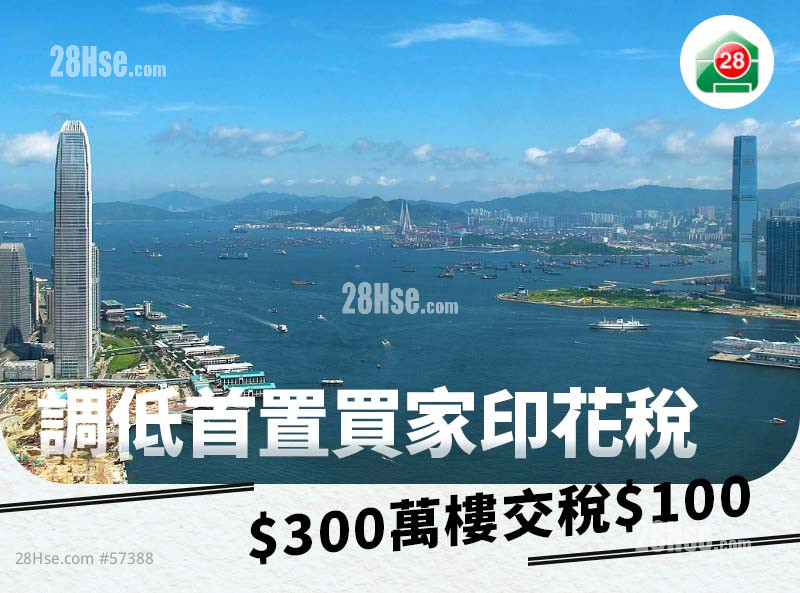Financial Secretary Paul Chan Mo-po announced the Hong Kong budget 2023-24 last week, which involved a number of economic relief measures, including the issuance of consumer vouchers and the adjustment of stamp duty bands. However, the real estate industry's proposal to reduce harsh measures on the property market was rejected, and various residential property demand management measures (the so-called "harsh measures”) remained unchanged.
Chan said that over 90 per cent of residential property purchasers last year were first-time home buyers. Since the decision to adjust the ad valorem stamp duty bands for residential and non-residential properties had not been adjusted since 2010, it has been decided that the adjustments are now in effect.
The adjustment’s main objective is to reduce the burden of first-time home buyers, especially for small and medium-sized flats, and it is expected that 37,000 buyers will benefit from this measure. What are the differences under the new stamp duty bands? How much money will buyers save?
The new policy targets residential units priced between HK$2 million and HK$10.08 million. Originally, units priced at HK$2 million or less were only required to pay a stamp duty of HK$100, but it has now been expanded to HK$3 million or less. In other words, if you buy a HK$3 million property, the stamp duty will be reduced from HK$45,000 to HK$100, saving 99.8 per cent of the tax. For properties with other property prices, the stamp duty payable has also been adjusted.
As the price of a residential property increases, the rate of tax savings will decrease accordingly. For example, for a HK$9 million property, the stamp duty rate has been reduced from 3.75 per cent to 3 per cent, meaning that the stamp duty required to be paid has been reduced from $337,500 to $270,000, a difference of $67,500 or 20 per cent.
It is undeniable that the government's move to adjust stamp duty rates is quite surprising. For one thing, the stamp duty had not been adjusted for over 10 years. For another, the adjustment would benefit most first-time buyers, speeding up their decision to buy a property and thus attracting genuine homebuyers to the market.
Will property prices rise sharply? I believe not. Property prices should rise slightly because the stamp duty adjustment will only attract users to the market, not investors. The relatively low attraction to investors and the small amount of money saved can hardly reduce investors’ investment costs. Therefore, the adjustment of stamp duty has limited stimulating effect on the property market.
Before the budget announcement, Deloitte proposed to the government a one-off deduction for the first-home purchase stamp duty of Hong Kong permanent residents, with an upper limit of HK$200,000. Deloitte also proposed to increase the deduction for home loan interest to a maximum of HK$150,000 per annum for 20 years of assessment to reduce the pressure on homebuyers.
Ultimately, the government did not accept the above proposals. But if we want to help genuine buyers successfully buy homes, apart from adjusting the stamp duty bands, a one-off stamp duty deduction is also a viable option. The tax deduction would stimulate more people's desire to buy their own homes. As such, more thought can be given to the new budget, to bring more surprises to the public.
Like 18

